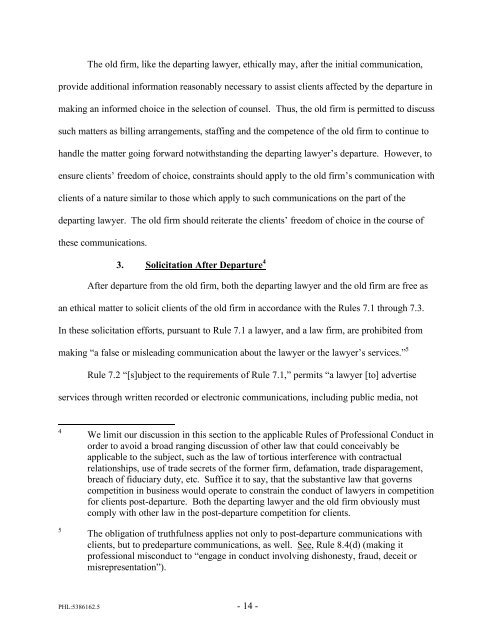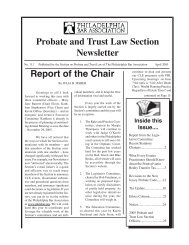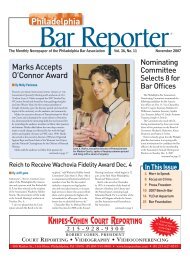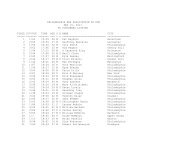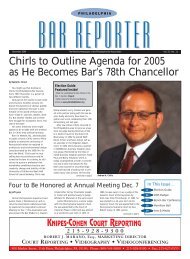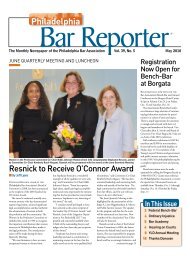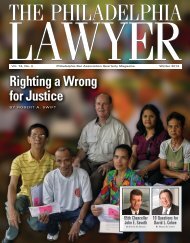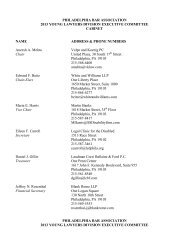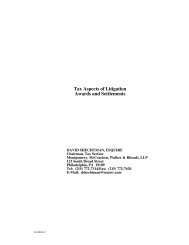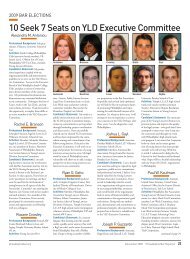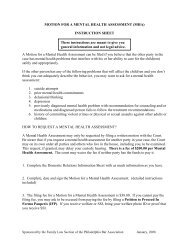here - Philadelphia Bar Association
here - Philadelphia Bar Association
here - Philadelphia Bar Association
Create successful ePaper yourself
Turn your PDF publications into a flip-book with our unique Google optimized e-Paper software.
The old firm, like the departing lawyer, ethically may, after the initial communication,<br />
provide additional information reasonably necessary to assist clients affected by the departure in<br />
making an informed choice in the selection of counsel. Thus, the old firm is permitted to discuss<br />
such matters as billing arrangements, staffing and the competence of the old firm to continue to<br />
handle the matter going forward notwithstanding the departing lawyer’s departure. However, to<br />
ensure clients’ freedom of choice, constraints should apply to the old firm’s communication with<br />
clients of a nature similar to those which apply to such communications on the part of the<br />
departing lawyer. The old firm should reiterate the clients’ freedom of choice in the course of<br />
these communications.<br />
3. Solicitation After Departure 4<br />
After departure from the old firm, both the departing lawyer and the old firm are free as<br />
an ethical matter to solicit clients of the old firm in accordance with the Rules 7.1 through 7.3.<br />
In these solicitation efforts, pursuant to Rule 7.1 a lawyer, and a law firm, are prohibited from<br />
making “a false or misleading communication about the lawyer or the lawyer’s services.” 5<br />
Rule 7.2 “[s]ubject to the requirements of Rule 7.1,” permits “a lawyer [to] advertise<br />
services through written recorded or electronic communications, including public media, not<br />
4<br />
5<br />
We limit our discussion in this section to the applicable Rules of Professional Conduct in<br />
order to avoid a broad ranging discussion of other law that could conceivably be<br />
applicable to the subject, such as the law of tortious interference with contractual<br />
relationships, use of trade secrets of the former firm, defamation, trade disparagement,<br />
breach of fiduciary duty, etc. Suffice it to say, that the substantive law that governs<br />
competition in business would operate to constrain the conduct of lawyers in competition<br />
for clients post-departure. Both the departing lawyer and the old firm obviously must<br />
comply with other law in the post-departure competition for clients.<br />
The obligation of truthfulness applies not only to post-departure communications with<br />
clients, but to predeparture communications, as well. See, Rule 8.4(d) (making it<br />
professional misconduct to “engage in conduct involving dishonesty, fraud, deceit or<br />
misrepresentation”).<br />
PHL:5386162.5 - 14 -


